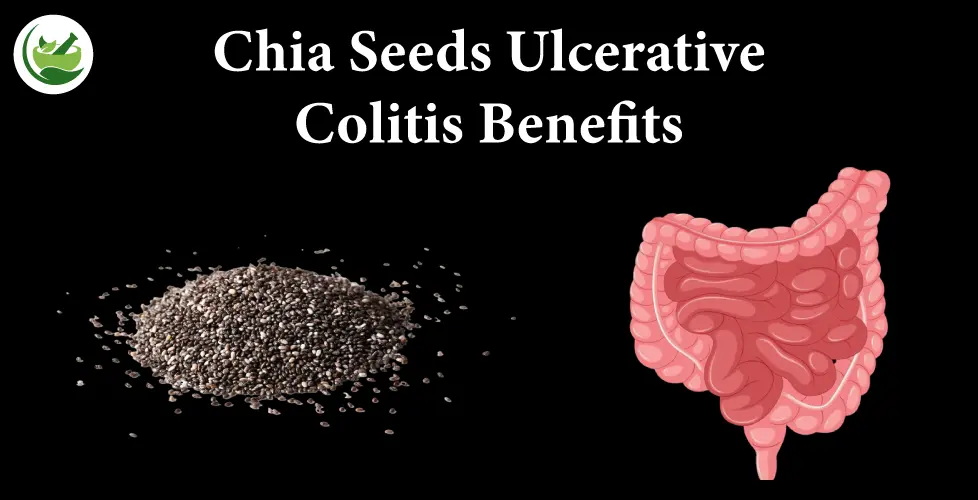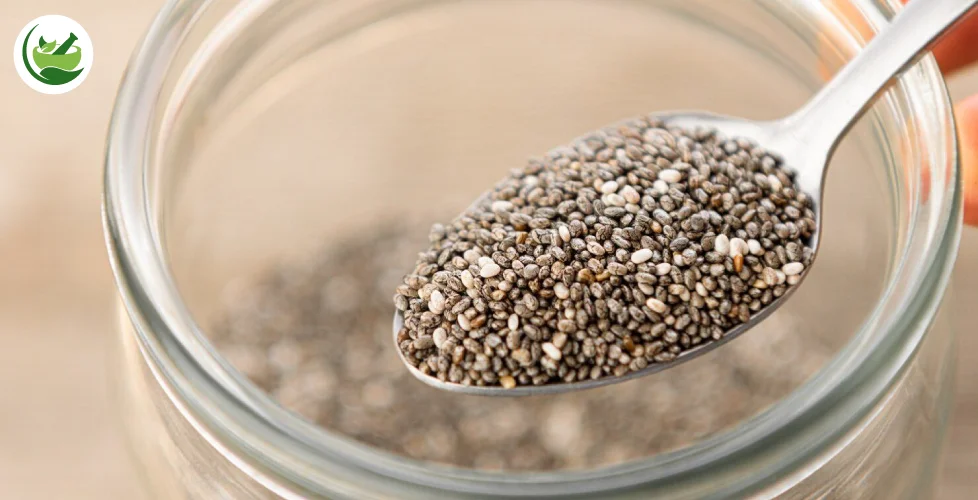
Ulcerative colitis (UC), a form of inflammatory bowel disease (IBD), can significantly impact one’s quality of life. It is characterized by inflammation and ulceration of the colon and rectum, leading to symptoms like abdominal pain, diarrhea, rectal bleeding, and fatigue. While medical treatments are essential for managing UC, dietary interventions can also play a crucial role in alleviating symptoms and promoting gut health. Among the various dietary components that are gaining attention for their potential benefits, chia seeds stand out as a versatile and nutrient-dense option. in this blog we deep dive into the Chia Seeds Ulcerative Colitis Benefits.
Understanding Ulcerative Colitis
Before delving into the benefits of chia seeds for UC, it’s essential to grasp the nature of the condition. UC is an autoimmune disorder wherein the body’s immune system mistakenly attacks the lining of the colon and rectum, leading to inflammation. This chronic inflammation causes the formation of ulcers and can result in various symptoms, including abdominal discomfort, frequent bowel movements, and even complications like malnutrition and dehydration. Managing UC involves a combination of medications, lifestyle modifications, and dietary changes aimed at reducing inflammation and promoting healing in the gut.
The Role of Diet in Ulcerative Colitis Management
Dietary choices can significantly impact the symptoms and progression of UC. While there is no one-size-fits-all diet for UC patients, certain dietary patterns and specific foods have been associated with either exacerbating or alleviating symptoms. For instance, a low-residue diet, which limits the consumption of high-fiber foods, may help reduce bowel movements and alleviate abdominal pain during flare-ups. Conversely, a diet rich in anti-inflammatory nutrients, such as omega-3 fatty acids, antioxidants, and fiber, may help modulate the inflammatory response and promote gut health.
Related blog How The Benefits Of Chia Seeds And Diverticulitis Can Improve Your Digestive Health
What are Chia Seeds? A Nutritional Powerhouse

Chia seeds, derived from the plant Salvia hispanica, have gained popularity in recent years due to their impressive nutritional profile and potential health benefits. These tiny seeds are packed with essential nutrients, including:
Omega-3 Fatty Acids: Chia seeds rank among the richest plant-based sources of alpha-linolenic acid (ALA), a type of omega-3 fatty acid recognized for its anti-inflammatory properties. Research shows that omega-3 fatty acids can reduce inflammation throughout the body, including in the gut, potentially benefiting UC patients.
Fiber: Despite their small size, chia seeds are an excellent source of dietary fiber. Fiber plays a crucial role in digestive health by promoting regular bowel movements, supporting the growth of beneficial gut bacteria, and helping to maintain a healthy colon environment. For UC patients, fiber intake needs to be carefully managed, as some types of fiber can exacerbate symptoms during flare-ups. However, soluble fiber, like that found in chia seeds, may be better tolerated and can help regulate bowel movements without causing irritation.
Antioxidants: Chia seeds are rich in antioxidants, including flavonoids, phenolic compounds, and vitamins, which help protect cells from oxidative damage and inflammation. By reducing oxidative stress in the body, antioxidants may help alleviate inflammation in the gut and support overall health.
Protein and Essential Nutrients: Chia seeds are a good source of plant-based protein, making them a valuable addition to vegetarian and vegan diets. Additionally, they provide essential nutrients such as calcium, magnesium, and phosphorus, which are important for bone health and overall well-being.
Related blog Health Benefits Of Black Vs. White Chia Seeds
Chia Seeds Ulcerative Colitis Benefits
Given their nutritional composition, chia seeds hold promise as a beneficial addition to the diet of individuals with UC. Here are some potential benefits of incorporating chia seeds into a UC-friendly diet:
Anti-inflammatory Effects:
The omega-3 fatty acids found in chia seeds may help reduce inflammation in the gut, potentially easing the symptoms of UC and promoting healing in the colon.
Gentle Fiber Source:
Chia seeds provide soluble fiber, which can help regulate bowel movements without causing irritation or exacerbating symptoms during flare-ups. This gentle fiber source may support digestive health and promote regularity in UC patients.
Nutrient Density:
Chia seeds are nutrient-dense, providing essential vitamins, minerals, and antioxidants that support overall health and well-being. Incorporating chia seeds into the diet can help ensure that UC patients receive vital nutrients to support their nutritional needs.
Versatility:
Chia seeds are incredibly versatile, easily added to smoothies, oatmeal, salads, and baked goods. This versatility allows UC patients to adapt chia seeds to their dietary preferences and restrictions. It’s convenient for anyone looking to incorporate them into various dishes.
Practical Tips for Incorporating Chia Seeds into the Diet
For individuals with UC looking to incorporate chia seeds into their diet, here are some practical tips:
- Start Slowly: If you’re new to chia seeds, start with a small amount and gradually increase your intake to assess tolerance.
- Stay Hydrated: Chia seeds absorb liquid and can expand in the stomach, so it’s essential to drink plenty of water when consuming them to prevent digestive discomfort.
- Experiment with Recipes: Get creative with how you incorporate chia seeds into your meals. Try adding them to smoothies, yogurt, puddings, or homemade energy bars for a nutrient boost.
- Consider Ground Chia Seeds: Some people find that ground chia seeds are easier to digest than whole seeds. You can grind chia seeds in a blender or coffee grinder before adding them to recipes.
- Monitor Symptoms: Pay attention to how your body responds to chia seeds and adjust your intake accordingly. If you notice any adverse effects or worsening of symptoms, consult with a healthcare professional.
Related blog Maximizing Nutrition: Exploring The Benefits Of Chia Seeds In Smoothies
Conclusion
Chia Seeds Ulcerative Colitis Benefits by offering anti-inflammatory omega-3 fatty acids and promoting digestive health with soluble fiber. They are a convenient, nutrient-rich option for improving overall well-being. It’s crucial to consult a healthcare provider or dietitian before making dietary changes, especially with specific restrictions or conditions. Integrating chia seeds with a balanced diet and proper medical care can help manage ulcerative colitis and improve life quality.
